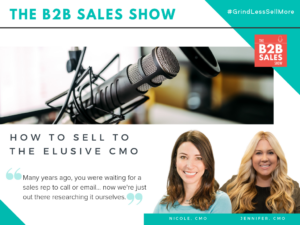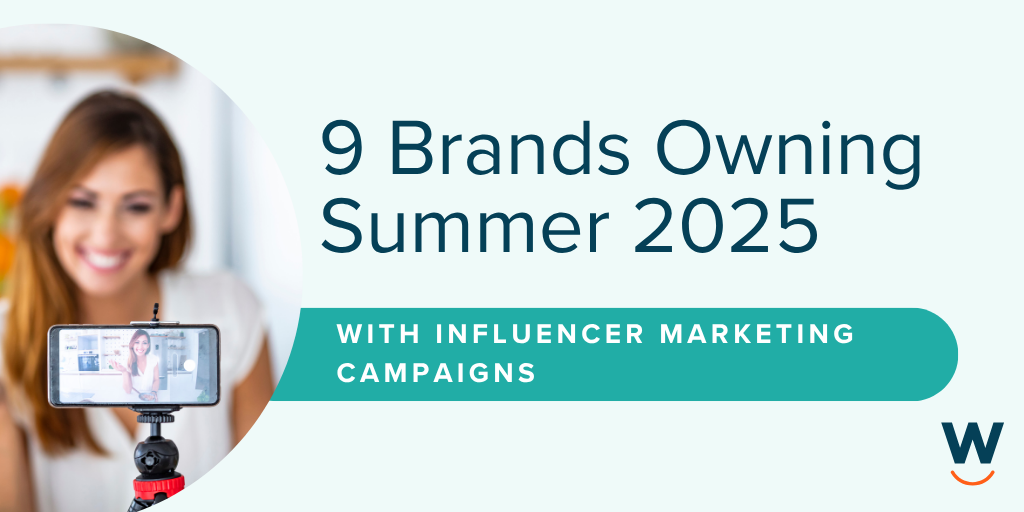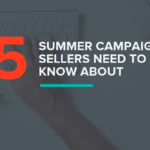
(Podcast) How to Sell to the Elusive CMO
 Guest, Nicole Smith: The easier you can make it to prove ROI to me that I can then turn over to my CEO, the less likely I’m going to be to move forward with one of your competitors, and the smoother just makes the sales cycle overall for me.
Guest, Nicole Smith: The easier you can make it to prove ROI to me that I can then turn over to my CEO, the less likely I’m going to be to move forward with one of your competitors, and the smoother just makes the sales cycle overall for me.
Announcer: You’re listening to the B2B Sales Show, a podcast dedicated to helping B2B sales professionals master the art and science of selling. If you want to hear what successful sales leaders and individual contributors are doing to break into new accounts, close more deals, and drive revenue for their organizations, you’ve come to the right place. Let’s get into the show.
Host, Jennifer Groese: Good afternoon, and welcome back to another episode of the B2B Sales Show. My name is Jennifer Groese, the Chief Marketing Officer at Winmo. And today, I am joined by a fellow colleague of mine, Nicole Smith, who is also a Chief Marketing Officer here in Atlanta. She works at a really great company called UserIQ. A little bit about UserIQ, before we get started, UserIQ is an innovative customer success platform that helps businesses align with their user needs. Nicole is specifically responsible for developing and executing in a go-to-market strategy that aligns sales and marketing efforts to generate brand awareness, thought leadership, and demand.
Groese: Nicole, thank you so much for joining us today and welcome to the B2B Sales Show.
Nicole Smith: Hi, Jennifer. Thanks for having me. It’s great to be here today.
Groese: Thanks for joining. One thing that I will add before we get going into the podcast today, it’s kind of a shout out for you. A well-deserved shout out, I would say. We’ve actually been customers of UserIQ and been working with Nicole for, I would say the past three years. We use UserIQ with all of our communications within our platform, and it’s really been a pivotal tool that my team uses on a day-to-day basis. So well-deserved shout out to you, Nicole, and your team over there.
Smith: Well, thank you for that shout out, and I appreciate you guys being such amazing customers. It’s so nice to work with you guys.
Groese: Oh, we got a compliment back. I like it. Okay. So, for today’s episode, I want to discuss a popular topic, and this is a really great topic for those of you who are in sales, and it’s around how to sell to the elusive CMO. According to a HubSpot report that I actually came across this week, 40% of salespeople say that prospecting is the most challenging part of the entire sales process. So for today, Nicole if you’re up for it, we’re going to give them some tips to kind of help them out during this prospecting challenge that they’re going through.
Smith: Yes. I agree that prospecting is definitely probably the hardest part of the sales cycle, and I’m happy to give some tips to help them out.
Groese: Great. So, in just a few moments, Nicole and I are going to be going through topics like what she and I personally expect from sales reps who are trying to win a piece of our marketing budgets. Also, what really gets us to open an email or even schedule a meeting amidst our overflowing inboxes and very busy schedules. And one more thing that I think was kind of funny, when I was jotting down some notes of getting starting today, is that even though Nicole and I are considered the elusive CMOs, and I’m using air quotes on my end right now, and we’re often sought after by sales professionals. On the flip side, Nicole and I are responsible for the demand generation of our businesses at Winmo and UserIQ.
Groese: So needless to say, we are both very, very familiar with sales prospecting, and we can hopefully provide a unique perspective on both ends of the equation to today’s conversation. Nicole, I know demand gen is a big thing on your to-do list just like it is mine.
Smith: Yeah. That’s huge. I mean, actually 80% of UserIQ’s business is from inbound as well, so I feel like I’m working very closely with our SDR team, and our inbound, and outbound reps on what they’re doing, and what the process is. I’m always looking at best practices and what we can be doing on a day-to-day basis to generate the best demand and move them to the sales cycle as well.
Groese: 80% is great. That’s a huge accomplishment. I think we hover around like 65%, so hopefully, your sales team is giving you and your team a lot of love at 80%. That’s really awesome.
Smith: The love goes both ways.
Groese: Yeah. Exactly. Well, let’s go ahead and jump into some of these questions. The first is kind of just around the pulse of the market right now for sales reps. You and I have been doing marketing for a while now. I won’t say the number of years because I don’t want to date ourselves, but we’ve been around for a while. So it kind of seems like, for sales professionals, getting through to the marketing C-suite is much more difficult than has been in prior years. So, I’d be curious to get your perspective on why you think that’s happening, more so now than before.
Smith: Yeah. I do think, as you said, it’s changed a lot over the years. I think there’s really two reasons for this, and I’ll start with one and then I’d love to get your feedback on it. Then we can talk about the other one as well. You know, first, I think some of this might be coming from all the noise that’s out there in the market. But there’s really this growing popularity to share best practices, and tips, and tricks on social media with the intention of building a personal brand or helping build a company’s brand. I’m not saying this is a bad thing. In fact, I think it’s really helpful for learning and growing professionally.
Smith: But, on the flip side, I think if someone’s highly regarded in the industry and they’re going on LinkedIn and saying they had success prospecting a certain way, there’s this tendency for everyone to go try and do that. That method that was unique and cool really loses its appeal when you receive 300 of those exact same emails really quickly, you know? So one example of that I can give, and always comes to mind when I think about this, is remember how sales reps used to reach out and send personalized videos in prospecting emails?
Groese: Yes.
Smith: Well, so that started out really slowly. I can still actually remember the first time I got a video email from a sales rep. I think it was from someone at Terminus, which is a local Atlanta company. I remember watching it a few times. I circulated it to people on my team, and probably the whole company actually, and I said, “We need to do this.” I think I actually responded to the sales rep because it was so unique, and that was the first one I had received. Then LinkedIn started blowing up with everyone talking about it and saying if you weren’t using video in the prospecting emails, you were missing the mark.
Smith: Then I pretty quickly started getting 10 of these video emails this week, and then you were automatically just deleting them. I feel like fad fades out. Come to think of it, when I was thinking about this, I can’t think of the last time I got a personalized video email. So I think that’s kind of some of the thing. Like, there’s just a lot of noise, and then everyone doing the exact same thing, and copying what everyone else is doing, which makes it really hard to stand out and be unique in the market.
Groese: Yeah. I’m so glad you mentioned the video email marketing because I jotted it down on my end. And just very much like you, when I got my first one… Because sometimes we can get in the habit, I don’t know about you, but it’s almost like deleting emails. As soon as you see a sales email in your inbox, it’s just like delete, delete, delete. Then you see that thumbnail image of a video, and it kind of stops you in your tracks because it’s different. You know, I found myself in the same boat of clicking on it and at least hearing what the sales representative had to say.
Smith: Yep. Definitely.
Groese: Another thing and I don’t know if you can relate to this but in addition to kind of everyone jumping on bandwagons and it getting a little bit too noisy, I feel like some sales reps have ruined it for others because they have not done a really great job in prepping for their outreach. You know, you get a few really kind of bad or half-assed emails or voicemails, and then you kind of become a little bit more numb to any other kind of incoming sale inquiries, or at least on my end.
Smith: Yes. I completely agree with that. You get those same cadences that say the exact same things just from different companies, and it’s just like, “Insert your company name,” or something like that. But once you’re getting a lot of those all the time, it’s really hard I think for a sales rep to stand out, and like I said, break above that noise too because there’s been people that have kind of ruined that.
Groese: Yeah. Absolutely.
Smith: I also think, as I was thinking about this too, that I think there’s more of the CMO, and just the C-Suite in general, that really know what they want now. They’re talking to peers about challenges they face, they’re learning how… You know, I got you and other people in our network and I’m asking like, “How have you solved this problem with technology?” Or they’re looking at industry experts, whether it’s an analyst firm, a review site, or a peer group, for validation and researching products online to figure out what they need.
Smith: So I think where, as many years ago, you were waiting for a sales rep to call or email them to learn about a product or a pain point you have, now we’re just out there researching it ourselves. Then I might go tell my team, “Hey. These are the top three solutions in the market, go evaluate them.” I think it makes it more important than ever now that companies are investing in building a strong brand that tells your story and speaks to how you can solve the C-Suite’s challenges. So that, when that CMO is out there doing this investigation, that you’re showing up in these searches or that a peer is using them as well. Because if not, I think you’re going to miss out, and then it makes it that much harder as a sales rep for you to go in there and get that market share.
Groese: Yeah. Absolutely. So there’s no doubt challenges for sales rep, this is why I’m in marketing. I work closely enough with sales, but there’s a reason why I stay on marketing side versus sales. So let me you ask you this, Nicole. So, if a sales professional is going to get a piece of your marketing budget, are there maybe two or three things that they must check off on your list in order to kind of capture your attention?
Smith: Yeah, there are. I have two big things, and then kind of a third bonus item I would add. So it’s not necessary but definitely helps the process. The two big things are, first, I want them to present me with a really personalized discovery call and demo. If something’s really cookie-cutter, and I feel like the disco call or demo is really super-scripted and they’re not answering my questions or meeting my needs, I’m going to be turned off and I’m likely to keep moving forward with the process. So, if you’re running through a script, and I’m asking a question, but you just keep bouncing back to something that’s already there, or you’re not showing me something I’ve asked to see, things like that are a red flag to me. Again, that’s going to be something where that’s not going to work to win my business.
 Smith: Then, as a second thing, it’s really important to have a sales rep helping build out a business case for the product or solution I’m buying. The easier you can make it to prove ROI to me that I can then turn over to my CEO, the less likely I’m going to move forward with one of your competitors, and the smoother just makes the sales cycle overall for me. So I think no matter what, at the end of the day, you’ve got to be able to prove ROI and the business value of your solution.
Smith: Then, as a second thing, it’s really important to have a sales rep helping build out a business case for the product or solution I’m buying. The easier you can make it to prove ROI to me that I can then turn over to my CEO, the less likely I’m going to move forward with one of your competitors, and the smoother just makes the sales cycle overall for me. So I think no matter what, at the end of the day, you’ve got to be able to prove ROI and the business value of your solution.
Groese: Yeah. That one’s great because ROI is just… You know, it’s so important for us as marketers because we’ve just got an up-the-hill battle almost when we take this to our executive team or board sometimes of asking for additional revenue that, especially, might not be on our budget. So anything they can do, to your point, like that concise business case. And especially if they’re doing it for us, because oftentimes, Nicole, you and I are the ones putting together that business case and then having to share it with our team. So the more leg-work they can do for us, that’s a really good point.
Smith: Yeah. Make it easy for us to sell internally and buy it.
Groese: Yep.
Smith: Then I would say my bonus point is, I love it when I’m buying software, and a sales team offers to let me have a conversation with their CMO-
 Groese: Oh, nice.
Groese: Oh, nice.
Smith: … about how they’re using the software at their organization. That usually helps me provide some additional use cases and think a little bit outside the box about how I could be using it as well. That’s a really great just networking moment for me, to meet another CMO, and it also helps build trust and accelerate the sales cycle. This has happened a few times for me when buying different software, and it almost always ends with me buying that product.
Groese: That’s great. I’m actually going to steal that tip from you after today.
Smith: Yeah.
Groese: Now I’m learning something from you also.
Smith: It works.
Groese: Yeah. All right, so we had a bonus round on that one. Those are really great, great points. The one thing that I jotted down on my end is sometimes I feel like some sales professionals… It really does take work. I mean, you’ve got to put the effort into learning about our business, what are the problems that we’re trying to solve for our customers, and really kind of educate yourself before you even send me an email or jump on the phone. Sometimes I see so many sales professionals who might just kind of like grab one sentence on our homepage, and reach out to me and think that they know what we do, and it’s kind of usually way off-base.
Groese: So something as simple as spending the adequate amount of time to research who you’re going after, and really trying to do your best, as well you can, to understand what the problems are that we as CMOs are trying to solve for our companies. It would be a big tip on my end.
Smith: I think that’s a great tip, and that’s where the best sales reps do really well, in my opinion.
Groese: Yep. Yep. You can definitely see who excels and who doesn’t there. Okay. So we’ve kind of seen a little bit of a shift in sales organizations over the past few years and the incoming roles of BDRs, or business development reps. So I’m really curious to get your opinion on what you think of this incoming role. For example, do you mind being qualified by one person, only to be passed over to someone completely different on the second or third call?
Smith: I really don’t mind that. Maybe I’m just saying that because that’s how our organization is set up, so I have to say that. No, I’m just kidding. No, I don’t. I don’t mind being qualified by someone else. I’m really a big believer that when it’s done right and if you’re following whatever your qualification model is, like some popular ones are BANT or the medic qualification principles, that qualification really save everyone time to determine if I’m going to be the right fit for your product and if you’re the right fit for my organization. Not everyone should make it through that discovery qualification call, so there should be a lot of drop off from between discovery and opportunity.
Smith: But, if an organization is just having an SDR or BDR do this to check off a box and BANT is not truly happening, then I think that’s really where it’s a big mess.
Groese: Yeah. No, and I think BDRs have offered a lot of help to both the marketing side of the organization and for the seasoned account executives as well too. Since you do have a BDR team in-house, as well your more seasoned sales veterans, do you have any tips to BDRs who might be listening in on this episode on kind of how to take it to the next level in their careers?
Smith: You know, I think just asking more of the why questions, really drilling in on to, “Why are you looking at the solution like this? What can we be showing you in a demo to make the most out of your time on this next call?” And finding out those why’s and not being scared to ask the big-budget need, timing, who’s going to be making this purchasing decision on your end. Those kinds of questions, I think, really help. I’d like to also encourage that the BDR joins that first demo as it moves forward and kind of doing that reiteration of what they heard on the discovery call, instead of just passing it off to the AE to handle that and say, “Oh, this is what my notes say.”
Smith: I think my biggest pet peeve is when I’ve spent 30 minutes doing a discovery call with a BDR, thought it went really well, and then you get on the demo, and you have those same exact questions asked again. So I think that’s a whole sales process thing of making sure that that sales leader has really put in a great process of, “Well, here’s this person that’s qualified, now let’s make sure that they’re not spending the next 30 minutes of their demo getting asked and it looks like we didn’t hear anything they said on that call before.”
Groese: Yeah. That’s a big pet peeve of mine. It kind of naturally leads itself to the next question here around time, right? We don’t have time to-
Smith: Yeah.
Groese: … repeat who we are, and who we serve, and what we do. So, as a CMO, time is really our most precious asset. If we could find a way to clone ourselves… I joke with my team all my time, “You know, I’d be doing great if I could figure out how to clone myself, add more time.” But a recent report shows, that on average, it’s taking about 18 calls to actually connect with a buyer and that only 24% of all sales emails are being opened. What that tells me is that there’s a lot of outreach coming our way, into our inboxes, and to our voicemails that we have to filter through on a daily basis.
Groese: Nicole, what are the channels, or the cadence rather, that you preferred to be sold to? You had mentioned the video email marketing kind of stood out for you before, what kind of touchpoints are you looking for? More importantly, how often and when is enough, enough?
Smith: Yeah. I would say… Yes, I wish I could just clone myself as well. You definitely need a clone of yourself. Calling is probably my least favorite channel. I really don’t pick up my phone. I’m never going to be able to have a non-scheduled call probably during the day either. I think one of the things that’s bugged me most about some sales stuff lately is that…
Smith: You know that spoofed local presence dialing where no matter where they’re calling from, it shows up as a local number? So, if I do happen to pick up a call because I’m expecting a call from someone that’s doing work on my home or a doctor calling me back, and you’re a sales rep calling me California, I’m going to get upset and irritated instead of it starting off the call the right way.
Groese: No, not at all.
Smith: Yeah. But I would say it’s still probably email for me. Even though I get a lot of emails, it still probably my favorite channel. I’m almost afraid to say this for fear of being inundated with prospecting emails, but I don’t read a lot of emails I get during the day from people that I don’t know and I’m more likely to hit Delete. However, a good time to catch me and get me to look at your email is during early morning hours when I’m getting ready for work, or after hours as well. I’m more likely to be like either I’m sitting on the couch and catching up on emails or doing something like that. That’s also the time where I’ll look at a prospect email, and flag it, and say, “Okay. I might be interested in this,” rather than just hitting the Delete button right away.
Groese: Now you’re going to be inundated with early-morning and-
Smith: I know. I know.
Groese: You’ve opened Pandora’s box and given the secret away.
Smith: Right.
Groese: No, but I would agree with your point of almost… I feel like salespeople try to get a little tricky sometimes with the local dialing and stuff like that, and even on voicemails. I get a laugh sometimes when I listen to my voice mailbox because, very similar to you, email’s best for me. I really never answer my phone during the day. But, when I go through my voicemails, some people will just give a name, and phone number, and say, “This is urgent if you can follow back up.” Then I’m left thinking, “Oh, do I really need to followup or is this a new sales tactic to get me on the phone?”
Groese: To your point, I think it just doesn’t start the relationship off on a very good foot. So being open and candid. If you’ve done a really good job of your research ahead of time, you really don’t have to do anything tricky in order to get us either via email or on the phone.
Smith: Exactly. It’s all about building trust in that sales process. If you start off on the wrong foot, it’s not going to go well and I’m probably not going to give you a shot.
Groese: Yep. Absolutely. All right, well we’re moving fast today. So I’ve already got the last question for today. We’ve been talking about things that we like about sales reps and mishaps that maybe we’ve had with sales reps, and I always like to give recognition to people who are doing a really great job in the industry. So, are there any companies that have wowed you recently with their sales approach?
Smith: Yeah. One example I’ll say… I’ll give you two examples, so I’ll give you one for prospecting and then one for their sales process.
Groese: Okay.
Smith: So a prospecting one, they’ve been prospecting me right now and after this plug, I’m definitely going to probably have to set up a call with them. I forwarded this guy’s email to my whole sales team as a great example of what works when talking to the C-Suite, but the first email he sent me was really personalized. When I say “personalized,” I don’t mean something like, “Oh, I saw you went to Georgia. Go Dawgs.” Because I think those are the worst emails and Delete.
Smith: His said something like, “I read your LinkedIn article where you talked about lessons you learned leading a start-up marketing team.” And then he references one of the lessons, which was Be Aware of Your Competitors but Don’t Obsess Over Them. And then proceeded to tell me in the email that in the spirit of honoring that lesson, one of our competitors is actually their customer and they’d help them succeed by doing X, Y, and Z. Honestly, that really piqued my interest. I will also say he sent me this email a little bit after-hours.
Smith: So two things, those were really good ways, very personalized, good time to get my attention, and, just again, he did a great job on that all around. He’s, I think, sent me two more emails since then that have also been very personalized and good. So I will be responding to him now because I said that.
Groese: He won the first round, at least.
Smith: Yeah. Then the other one is InsightSquared. They’re a company we use. We’re a customer of theirs, but their sales process was amazing. We had bought the product almost two years ago, and I think it goes a long way to say that I still keep in contact with our sales rep because he was so amazing. The things I mentioned before, about how to win business and what a sales rep should do to win business, are all the things that InsightSquared did.
Smith: Their demo was super-personalized, and they even did an additional one and personalized it for our CEO. They let us do a trial of the product, build a business use case, and they helped us build out that business use case. It wasn’t on us to prove value and ROI internally. Then they connected me in-person with their CMO to talk use cases and marketing ROI. So, needless to say, they blew their competitor out of the water, and we’re still happy customers two years later, today.
Groese: Ah, that’s great. Yeah, you find the people… Would you agree the people that you can tell have put more time into prospecting and working the entire kind of journey are the ones that usually make it to the finish line for you? And you can easily tell who’s put their time in and who hasn’t?
Smith: Yes, 100%. Then it’s like, when you get to the end of the sales process, if you feel like the sales rep is one of your friends that you want to talk to, and you want to go tell their boss they did a great job, then just congratulate them instead of having an icky feeling at the end of the sales process that you just kind of got worked over, you don’t feel good about it. I want to feel good at the end of a sales process, and like I’m entering into a great partnership.
Groese: That’s such a great way to phrase it of wanting to almost congratulate that person, rather than that icky salesperson feeling that people talk about often, you know?
Smith: Yes.
Groese: You know, I’ll add one last thing before we kind of wrap it up here, but we were talking about a nice kind of warm, good feeling at the end of the prospecting journey. One company has done a really good job of prospecting my entire department. It is actually they were kind of at the end of the process with them and another competitor, and they actually sent in this huge order of cupcakes to our office. Now that might sound really silly in comparison to everything else that they did for prospecting us. The response throughout the office, Nicole, was just crazy. I had people from our IT team and our sales organization coming over and asking who the company was and if we were going to partner with them. It was like I was almost getting peer pressure from other people in the company, just because they had a little bit of a chocolate or sweet tooth fix for the day, which I thought was pretty funny.
Smith: That’s great. I mean, did they have their logos or anything on the cupcakes?
Groese: Oh, yeah. Absolutely. Everything was branded. But they know the way to people’s hearts with-
Smith: They do.
Groese: … some sweets or chocolates in the middle of the afternoon, when you’re kind of hitting your low coming up on 5:00 PM. So that was something unique that kind of caught us off-guard a little bit.
Smith: I like that idea.
Groese: Everyone enjoys those moments.
Smith: Mm-hmm (affirmative).
Groese: Yeah. We’ll wrap up our episode for today at the B2B Sales Show. Nicole, thank you so much again for joining us and sharing your wisdom on tips and tricks on how to capture the elusive CMO. If listeners want to get In touch with you, Nicole, what’s the best way to learn more about UserIQ or reach out to you if they have any more questions?
Smith: Yeah, of course. If you want to learn more about UserIQ, you can visit useriq.com. In the spirit of being of transparent, I’ll give out my email, so that if you want to prospect me or reach out, you can find me. It’s nicole@useriq.com.
Groese: Okay. That’s great. Lastly, if you’d like to learn more about how Winmo can specifically help you connect with chief marketing officers and other marketing executives at precisely the right time, I’d highly encourage you learning more at winmo.com/b2bsalesshow. Once again, thank you for listening, and we look forward to catching you on our next episode.
Announcer: Looking for a smarter way to find a relevant and actionable sales leads each day, and a better way to open new doors with advertisers, marketers, and their agencies? That’s where Winmo can help. Recognized and trusted by your peers is the most comprehensive, accurate, and widely-used advertising database available. Winmo is your only source for exclusive sales leads that are curated by analysts and delivered to you each and every morning.
Announcer: See what your industry peers are using to beat you to the sale. Start receiving the actionable leads you need to start owning the sales leaderboard now. Step up your sales game and win more by requesting a custom demo of Winmo today. Go to www.winmo.com/b2bsalesshow.
Announcer: You’ve been listening to the B2B Sales Show. To make sure you don’t miss future episodes with the sales leaders, professionals, and thought leaders, subscribe to the show in your favorite podcast player. Thank you so much for listening. Until next time.
The B2B Sales Show is a podcast dedicated to helping B2B sales professionals master the art and science of selling. If you want to hear what successful sales leaders and individual contributors are doing to break into new accounts, close more deals, and drive revenue for their organizations, you’ve got to check out their content!





